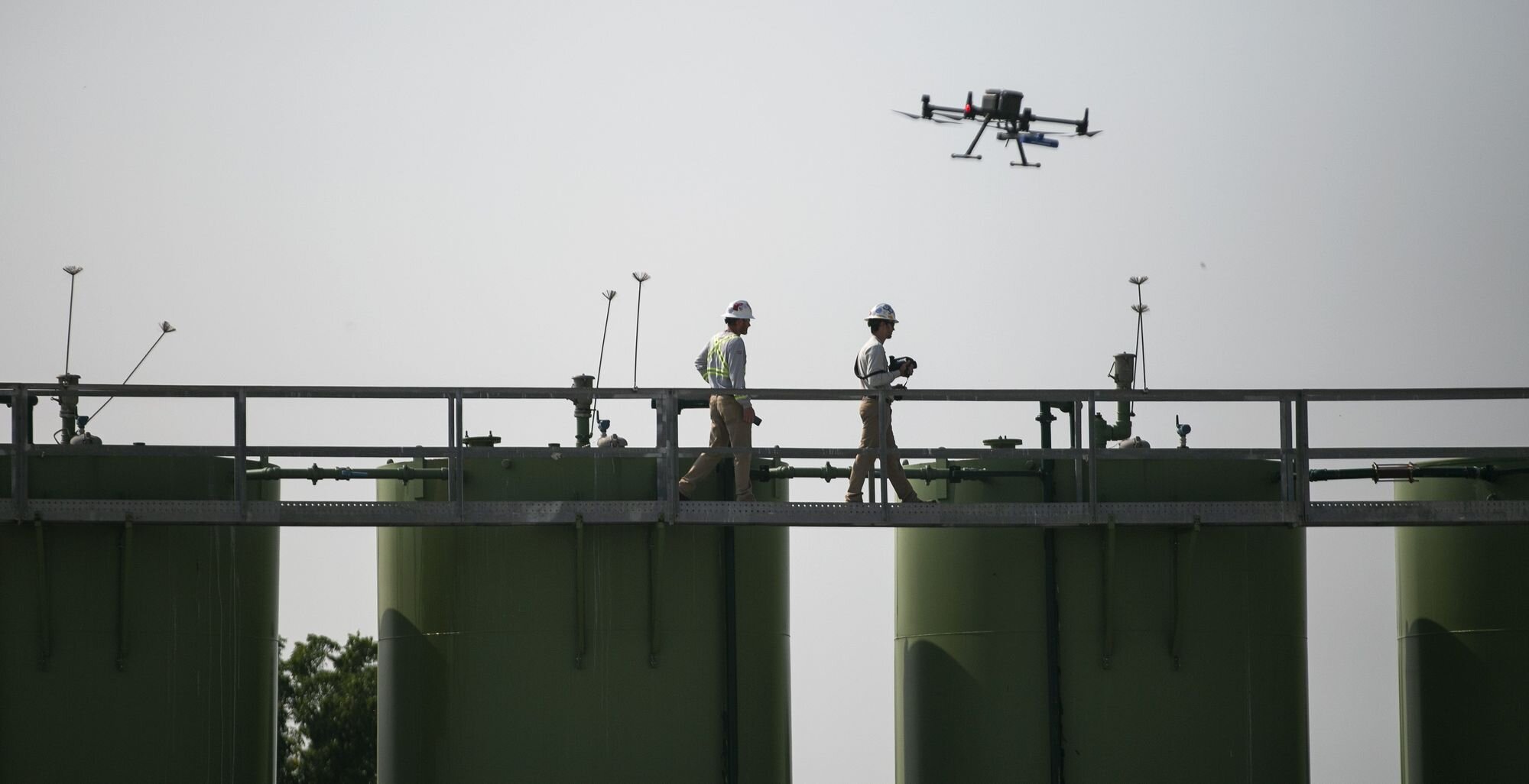LNG Companies Launch Drones to Analyze Methane Release
/While gas burns cleaner than coal, gas operations leak methane. Although methane makes up a smaller percentage of total greenhouse gas (GHG) emissions than carbon dioxide, it has a more potent effect on atmospheric warming. Pressure from environmentalists, investors, and customers have pushed gas companies to track, analyze, and reduce methane emissions.
Shale executives have said that keeping U.S. supplies competitive in the long term will require companies to reduce leaks from wells, processing facilities, pipelines, and export plants The tricky part, they said, is proving to skeptics they’re actually doing so.
To meet methane data demands, EQT, the top U.S. gas producer, and Cheniere Energy, a top exporter, are teaming up to track the emissions from wells that feed major shipping terminals. The companies are trying to collect reliable data on releases of methane and to demonstrate they can reduce these emissions over time.
NGOs, startups, and other organizations have been using drones and satellites to collect advanced imaging of methane released into the atmosphere. The imagery is processed using AI and machine learning to quickly identify, down to the precise location, where methane is coming from.
From Wall Street Journal
EQT and Cheniere are working with researchers to test drones, specialized cameras that can see methane gas, and other technologies across about 100 wells in the Marcellus Shale in the northeast U.S., the Haynesville Shale of East Texas and Louisiana, and the Permian Basin of West Texas and New Mexico.
The goal is to collect methane emissions data and see how it stacks up against current estimates. After testing, the companies and researchers will decide which technology should be deployed on a larger scale for continuous monitoring of methane leaks
Starting next year, Cheniere plans to provide customers with data on emissions that are tied to each shipment it sends from its two Gulf Coast export facilities. It hopes cleaner gas—with data to back up claims—will fetch a premium from customers focused on decreasing their own environmental impact.
Want more on the latest technology being deployed to detect and reduce methane emissions? Join us for the MethaneTech Forum, co-located at the Energy Drone & Robotics Summit.
It’ll be a gas.



